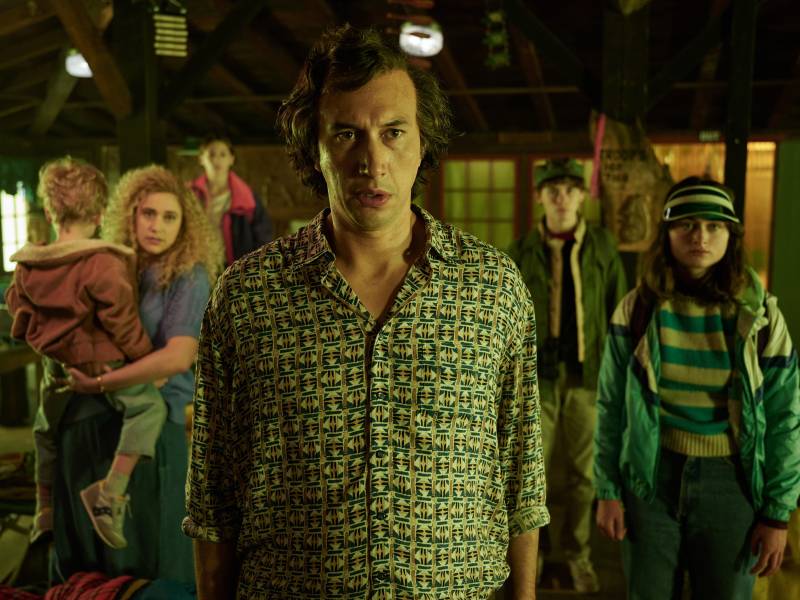In fact, watching White Noise reminds me a bit of watching the work of the New Wave’s greatest genius, Jean-Luc Godard, who was, as it happens, a huge influence on DeLillo. Godard’s movies always tended to shuffle brilliant scenes with sections that leave you weak with boredom. You get the same unevenness here, but Baumbach is less intimidating than Godard or DeLillo, neither of whom ever worried about making the audience happy. Baumbach keeps White Noise on the lighter, less political side of the ledger, as in the joyous supermarket finale that’s miles from DeLillo’s trademark sense of paranoia and dread.
Laced with good jokes, the movie brims with terrific moments, be it Murray’s magnificent riff on Hollywood car crashes — which he sees as an expression of American optimism — or the sly sequence at the evacuee camp that seems to come from a missing movie by Baumbach’s friend and collaborator, Wes Anderson.
Early on, Jack and Babette have a talk in which each admits that they hope they die before the other. It’s partly funny, partly not. And it underscores White Noise’s obsession with death, the fear of dying, and especially the countless ways we fend off that fear — by turning catastrophes into media spectacles, by reducing the genocidal Hitler to a kind of pop icon, by smoothing ourselves out with dodgy drugs and by pretending that the disasters we see on TV could never hit us. And, if all else fails, the movie assures us, we can always go shopping.
Copyright 2023 Fresh Air. To see more, visit Fresh Air.9(MDAxOTAwOTE4MDEyMTkxMDAzNjczZDljZA004))

9(MDAxOTAwOTE4MDEyMTkxMDAzNjczZDljZA004))

